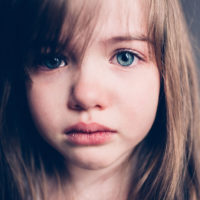Psychotherapies
-

Most adolescents with depression are significantly fatigued: What can we do about it?
“Fatigue” describes an extreme state of tiredness or exhaustion. When it is ongoing and not explained by exertion, it can become problematic.
Read more -

JCPP Editorial: Volume 60, Issue 06, June 2019
“Correlation and causation: to study causality in psychopathology” by Arne Lervåg
Read more -

Fetal Alcohol Spectrum Disorder
Our conference on Fetal Alcohol Spectrum Disorders aims to raise awareness and understanding of fetal alcohol spectrum disorders (FASD) and provide an overview of how individuals and families affected by FASD can be supported. Listen to Dr. Jennifer Shields & Dr. Sarah Brown discuss FASD in this podcast. Key takeaways To raise awareness of the […]
- Event type
- Conference
- Location
- London
-

Mood Disorders
Fluctuations in mood to the extremities of feeling can have a negative effect on your general emotional state. These Mood Disorders can interfere with your ability to effectively function. At times the individual can be disproportionately sad, have feelings of emptiness or irritability, together with times of depression interchanging with periods of extreme happiness or […]
- Event type
- Day Conference
- Location
- Southampton
-

Ordo ab chao: The need for systematic reviews
…researchers are expected to strive exhaustively in their effort to gather a number of studies and research findings before rigorously assessing them for their quality and then presenting the conclusions in a reasoned, fair, and impartial summary.
Read more -

Social connectedness and suicidal thoughts and behaviors among adolescents
Suicide is a major public health concern claiming over 44,000 lives annually and ranking within the top 10 causes of death for the general population and the 2nd leading cause of death for those aged 15-24 years of age (though there is variation in this when examining causes by racial groups).
Read more -

Children’s Understanding of Depression
Depression is a mental illness that affects children and especially adolescents, however little is known about how children and adolescents understand depression. Gaining an understanding of how children perceive illness can facilitate effective communication with health professionals and children’s active involvement in decision-making about their health.
Read more -

Continued family dysfunction accounts for the association between childhood adversity and adolescent self-harm
Non-suicidal self-injury (NSSI) is any deliberate attempt at inflicting physical self-harm in the absence of suicidal intent. NSSI peaks during adolescence, with roughly 17% of adolescents reporting having engaged in it at least once.
Read more -

Risk of serious harm to self, and others
Risk of serious harm, to self and others, is an important topic to discuss. When should we be concerned, and what can we do? With the rise in the prevalence of mental health difficulties in children and young people, there is an increasing need to recognise the range and degree of risks presented by young […]
- Event type
- Conference
- Location
- Southampton
-

Autism Spectrum Disorders and Obsessive Compulsive Disorder edition
This edition of ‘The Bridge’ focusses on Autism Spectrum Disorders and Obsessive Compulsive Disorder. Both of these can resemble each other with the over-focus, special interests and anxieties seen in ASD resembling the obsessions of OCD, and the routines, rituals and need for order and sameness that can be seen in ASD resembling the compulsions in OCD.
Read more